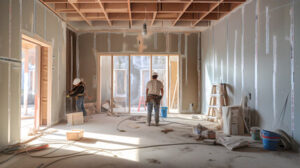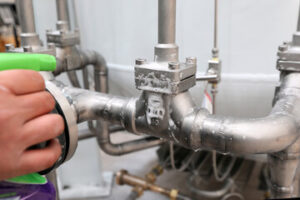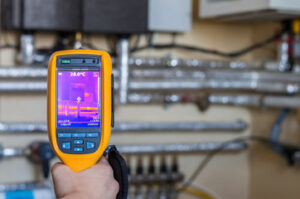A life insurance agent is a person who can help you understand your options and choose the right policy. They can also keep you updated as your application moves forward with the insurer.

They will work with you to assess your family’s needs and budget, then recommend a plan that suits those requirements. Click Here to learn more.
Life insurance agents work with clients to determine their coverage needs, budget, and goals. They provide quotes from a variety of companies, and can help you choose a policy that fits your unique circumstances. They will also assist you with policy amendments and claims. They’re licensed professionals who have the education and professional designations to offer sound advice.
A good life insurance agent will take the time to get to know you, your family, and your financial situation. They will be clear and transparent when describing your options, and they will answer all of your questions – no matter how small. You should never feel rushed or pressured to make a decision.
They will also help you understand the different types of life insurance policies, including term and permanent policies. Term policies provide protection for a certain period of time, while permanent policies last for your entire lifetime. They will explain the benefits and drawbacks of each type of policy, and guide you to the one that best suits your needs.
In addition to guiding you through the various policies, a life insurance agent will also assist with the application process and other paperwork required for underwriting approval. They will also follow up with you on a regular basis to assess any lifestyle changes or other factors that may warrant a change in your coverage.
There are two main types of life insurance agents: captive and independent. Captive agents typically only sell insurance from the company they represent, while independent agents can offer a wider range of products from multiple insurers.
When selecting an agent, ask for client references and check online reviews. It’s also a good idea to compare professional designations, such as Chartered Life Underwriter (CLU). The qualifications needed for earning and maintaining these credentials can vary significantly, so it’s important to find out what they mean in terms of your specific situation. In addition, you can research any complaints against an agent online by searching their name + complaint.
They Help You Find the Right Policy
Life insurance agents work with clients to help them determine their needs and choose a policy that will best fit those needs. They can explain the difference between term and permanent life insurance and help you understand how to calculate the amount of coverage you need. Additionally, they can provide details on each company’s policies, including their financial stability, claims process, customer service reputation and more. This level of expertise can save you time and help you feel confident in your selection.
In addition to helping you select the right policy, life insurance agents can also assist with the application process. They can explain how to accurately fill out the application and help you gather the necessary documents to submit for approval. They can also keep you updated as the application goes through and handle any communication with the insurer on your behalf.
Many people choose to buy life insurance through an agent because they need the guidance of someone with experience and knowledge in this area. Life insurance agents are typically trained to understand the needs of individuals, families and business owners and can provide expert advice. Depending on their training, they may also be knowledgeable about other types of insurance, such as health, auto or home, which can often be purchased alongside life insurance.
While it is possible to purchase life insurance without an agent, doing so can be complex and time-consuming. Besides needing to familiarize themselves with state regulations, the underwriting process and various companies’ products, individuals must also consider their family responsibilities and financial situation. Having an experienced agent can make the process much simpler and ensure that all requirements are met.
It is important to note that if you are working with an agent who represents one particular life insurance company, they may be biased toward their own policies. This can result in them recommending a policy that is not the best for your specific needs. This is why it is generally preferred to work with an independent or fee-only advisor, as they will not be tied to specific products and can recommend the most suitable options for you.
They Help You Update Your Policy
Life insurance agents understand your needs and can help you determine which type of policy is right for you. They can also help you with the process of applying for and getting approved for a policy. This includes completing necessary paperwork and coordinating any required medical exams. Some agents are “captive” and only sell products from one company, while others work as “non-captive” agents, representing multiple insurers.
The life insurance agent’s expertise doesn’t end after the initial purchase, either. They can also help you with policy updates, such as changing the beneficiary on a life insurance policy. This is especially important, as the life insurance agent can ensure that your new beneficiary has all of the information needed to claim benefits in the event of a death.
Since life insurance agents collaborate with a variety of clients, they’re familiar with the roadblocks that can occur during the application process. For example, if you have a pre-existing condition that might prevent one insurer from covering you, they can help you find another insurer that does. In addition, life insurance agents are familiar with the different benefits and disadvantages of varying policies. They can offer expert guidance on the various options that are available, and they always have a pulse on any new options that might come onto the market.
When selecting a life insurance agent, you should make sure they’re licensed to sell life insurance in your state. This usually requires completing pre-licensing education courses and passing a state exam. In addition, they should be active in the community and involved in professional organizations to stay abreast of new life insurance policies and regulations.
Finally, you should make sure your life insurance agent is honest and straightforward with you. They should be able to answer all of your questions (even the small ones), and they shouldn’t be pushy about making a sale.
A good life insurance agent will take the time to listen to your needs and understand your family’s situation. They’ll then recommend a policy that meets your specific requirements and budget. Ultimately, their personalized guidance and ongoing support foster long-term relationships with their clients.
They Help You Stay Informed
A life insurance agent’s primary goal is to help people find coverage that meets their needs. They also know how to keep customers updated as the insurance process moves forward. For example, sometimes the insurance company may need additional documentation or information. The agent will handle all communications with the insurance company so the client doesn’t have to worry about it. The agent can also help clients understand their policy options, including how much coverage they need and who to name as beneficiaries.
Many people who have a passion for helping others, and a desire to make a significant difference in the lives of those that they serve, find careers as Life Insurance Agents. However, this is a demanding job that requires substantial time and effort to establish a solid client base, and it is difficult to achieve a sustainable income through commission alone. In addition, life insurance is a sensitive subject that can make it difficult to sell policies.
The best way to stay competitive as a Life Insurance Agent is to continue to educate yourself on industry trends, policy updates, and market shifts. Additionally, building strong relationships with clients by actively listening to their concerns and goals enables agents to recommend the most fitting policy. Having high ethical standards is also a critical component of this career, as well as the ability to empathize with clients to understand their financial realities.
Finally, implementing technologies that streamline processes, automate follow-ups, and track policy renewals can help to ease the burden on Life Insurance Agents while maintaining productivity. Having a support network of peers and mentors can be invaluable as well, providing resources and advice for navigating challenging situations.
The bottom line is that Life Insurance Agents play a vital role in helping families obtain the financial protection they need after the death of a loved one. This type of coverage can help to pay off debts, cover funeral expenses, and provide ongoing income to family members. Those who take the time to build relationships with their clients and play the long game will find that they can be very successful in this rewarding career.








